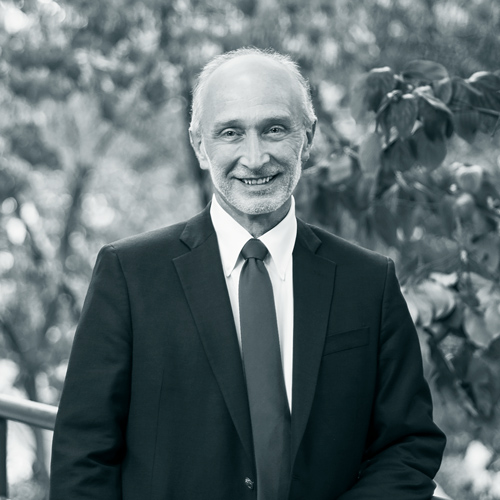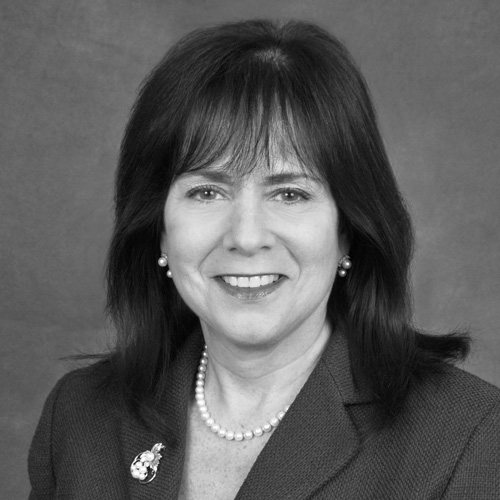Once you’ve driven a high-performance formula car at upwards of 175 miles per hour, as Owensboro Health general counsel Ward Begley did for years as a competitive racer, that kind of adrenaline is hard to come by elsewhere. Although he might never reach those speeds again, Begley has found an approximation in the bustling legal environment of healthcare.
Begley was first exposed to medicine as a child. His father, an otolaryngologist, would take him along to work. Lunch was in the doctors’ lounge, where he absorbed the professional culture of physicians. He often sat in the emergency room and watched as patients were rushed in on stretchers and attended to by the ER nurses. One of his father’s coworkers, a radiologist, would invite him to sit with him while he read films. This was before HIPAA and privacy regulations, and he would even accompany his father into surgery at times.
“Doctors were my heroes,” he says. “It had a very positive impact on me, seeing the men and women who were physicians, what they cared about, and how they applied themselves to the work of caring for patients.”
Still, Begley had other passions that would delay his career in the field. A football and baseball player in high school, he continued to play baseball in college. Also, while in college, he began racing formula Fords for a British race car manufacturer. Once he graduated, Begley moved to England and drove on the European circuit, primarily in the United Kingdom.
When he got back to the United States, a lull in racing opportunities prompted Begley to start thinking about what else he might want to do, so he entered law school. He still raced sporadically and even won a championship while he was clerking for the Court of Appeals. After he got married and a Formula 3000 drive in Europe fell through at the last minute, Begley pivoted and decided to stop racing and make law his career.
First, he found a job at a small firm but wasn’t enthusiastic about some of the things he was asked to do. Putting a finer point on his career ambitions, he began to figure out a way to use his legal expertise and his ties to the medical community to work with physicians. On the counsel of his father, he entered DePaul University’s College of Law in Chicago to obtain his legal master’s degrees in both healthcare and taxation. When he entered the workforce, healthcare changes were pervasive, and there were a host of regulatory and payment issues to deal with. However, to Begley, it was exciting to get involved in the field when so many changes were afoot.
“Because I had so many physicians that were friends, I had a unique insight into their mind-set and what concerned them about practicing medicine moving forward,” he says. “Not just from the standpoint of how they were getting paid, but also the way payers were trying to influence how they practiced medicine.”
After he worked for several years as outside counsel for Owensboro Health, a full-service integrated health system that serves western Kentucky and southern Indiana, the company hired Begely as its in-house general counsel. In the nine years he’s been with the system, he’s seen a lot of growth.
“As it has elsewhere, healthcare in Owensboro has evolved,” he says. “We built a multimillion-dollar replacement facility in Owensboro, which was completed in 2013, and later acquired another hospital in neighboring Muhlenberg County. When I started, we only served Owensboro and a few rural counties in western Kentucky. Now, we serve 13–15 counties, and we have more than eighty employed physicians and other providers. The footprint of the area we serve has grown exponentially. We’re truly a system.”
Begley approaches his job by placing a high level of importance on availability and transparency. He says that he impresses on everyone, not just the vice presidents and directors, that they can contact him anytime, about anything.
“I don’t mind being a sounding board,” Begley says. “A lot of times, we get calls and they’re not of a legal nature, but we want people to feel comfortable, so we will listen and help them work through their issue.”
Begley also notes that he picks up calls from anyone, at any hour. Recently, the emergency department called him at two in the morning to ask about a court order. After working through the issue with his team and the court, they resolved the issue. That kind of accessibility and responsiveness has won Begley the confidence of staff, and the effect of that confidence trickles down to the patients themselves.
“I try to relay that it’s our job to take care of the patient,” he says. “We make our decisions based on that. Our focus is on compliance with the numerous and complex regulations that govern our industry, but if we err, it’s going to be on the side of what is best for the patient. We want people to come away feeling like they’ve received safe, excellent, and quality care. Our people work tirelessly to ensure that patients receive the high quality of care that they deserve, coupled with a patient-friendly and respectful experience.”


